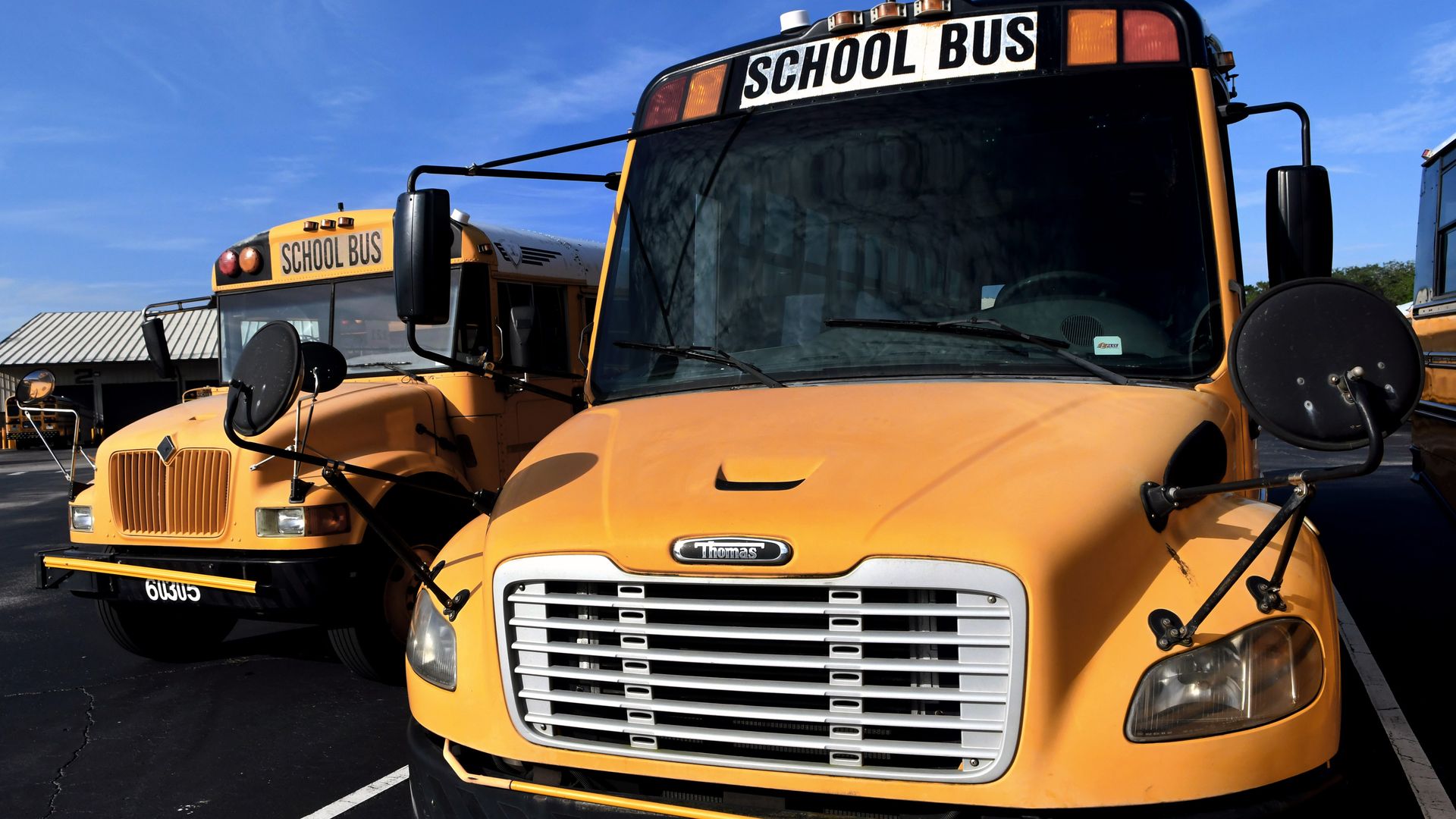Study: Kids may contribute to COVID-19 community spread more than previously thought
Add Axios as your preferred source to
see more of our stories on Google.

Photo: Paul Hennessy/NurPhoto via Getty Images
A study published Thursday found that children may play a larger role in the spread of COVID-19 than previously realized, intensifying concerns as schools grapple with whether to reopen.
Why it matters: The findings, published in the Journal of Pediatrics, coincide with changing scientific research analyzing children's ability to spread the virus, despite showing mild or no symptoms.
What they found: Researchers at Massachusetts General Hospital and MassGeneral Hospital for Children in Boston found that of the study's 192 participants, 25% tested positive for COVID-19.
- The children who tested positive had significantly higher levels of the virus in their airways compared to adult patients hospitalized in intensive care units.
- While some of the children presented symptoms, others did not, adding to fears that children may be silent spreaders of the virus.
- "It would be ineffective to rely on symptoms or temperature monitoring to identify SARS-CoV-2 infection," the study's authors wrote, emphasizing the need for mask use and social distancing.
- “Some people thought that children might be protected,” Alessio Fasano, one of the study's authors, told the Washington Post. “This is incorrect. They may be as susceptible as adults — but just not visible.”
The big picture: The closure of schools and day cares across the U.S. has limited the understanding of how children contribute to the spread of the coronavirus.
Additionally, recent studies have raised concerns about infections among children.
- A report from the American Academy of Pediatrics shows that COVID-19 cases among children increased 40% in the second half of July.
- Children can also develop multisystem inflammatory syndrome, which is a serious COVID-19 related illness that could develop within several weeks after infection.
The bottom line: Children are not spared from the virus and could worsen community spread as schools reopen.
